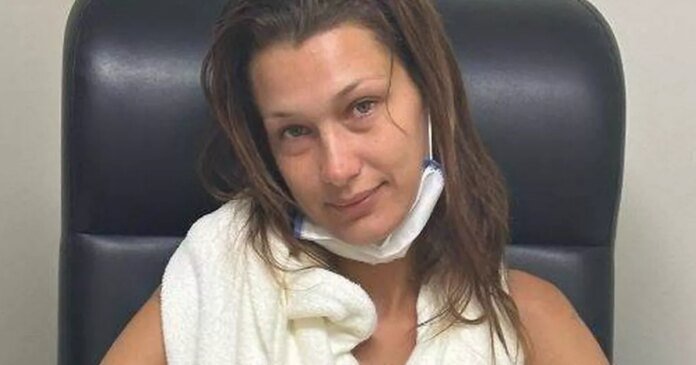Supermodel Bella Hadid, known for gracing magazine covers and collaborating with renowned brands like Dior and Versace, is facing a hidden battle with Lyme disease despite her glamorous persona. Recently, the 28-year-old shared emotional images on her Instagram showing her hospitalized with tubes connected to her body. While confined to bed, she has been engaging in card games, watching TV, and resting extensively to combat the effects of the tick-borne illness, expressing her apologies for disappearing from the spotlight.
Bella, whose mother Yolanda Hadid, a former model and Real Housewives of Beverley Hills star, has also faced Lyme disease for an extended period, is receiving an outpouring of support from fans. She mentioned her intention to provide more insights into managing her condition once she regains strength.
Highlighting the seriousness of the situation, Bella’s mother shared her distress at witnessing her daughter silently struggling with the disease, evoking a sense of deep despair. Lyme disease, as per the NHS, is a bacterial infection primarily transmitted to humans through tick bites. Early detection significantly aids in treatment effectiveness, although diagnosis can be challenging.
The disease is caused by Borrelia burgdorferi bacteria carried by ticks, which inhabit various environments but thrive in moist areas with foliage. Ticks attach to clothing or skin upon contact with vegetation, feeding on blood, with not all ticks carrying the Lyme disease-causing bacteria.
Recognizing the importance of identifying symptoms, individuals like Ali have raised awareness, drawing parallels between their experiences and Bella Hadid’s struggle. Ali emphasized the harsh reality of Lyme disease treatment, dispelling any notions of glamour associated with it, highlighting the exhaustive physical and mental toll it exacts on individuals.
Additionally, Ali outlined key symptoms to watch for, echoing the NHS’s cautionary message regarding persistent symptoms post-treatment. Some individuals may continue to experience fatigue, aches, and reduced energy resembling conditions like fibromyalgia and chronic fatigue syndrome, with unclear reasons for this occurrence and no universally agreed treatment approach.
Moreover, the NHS warns against unverified tests and treatments offered by certain websites for Lyme disease, emphasizing the importance of consulting a healthcare professional before pursuing online solutions for health concerns.
